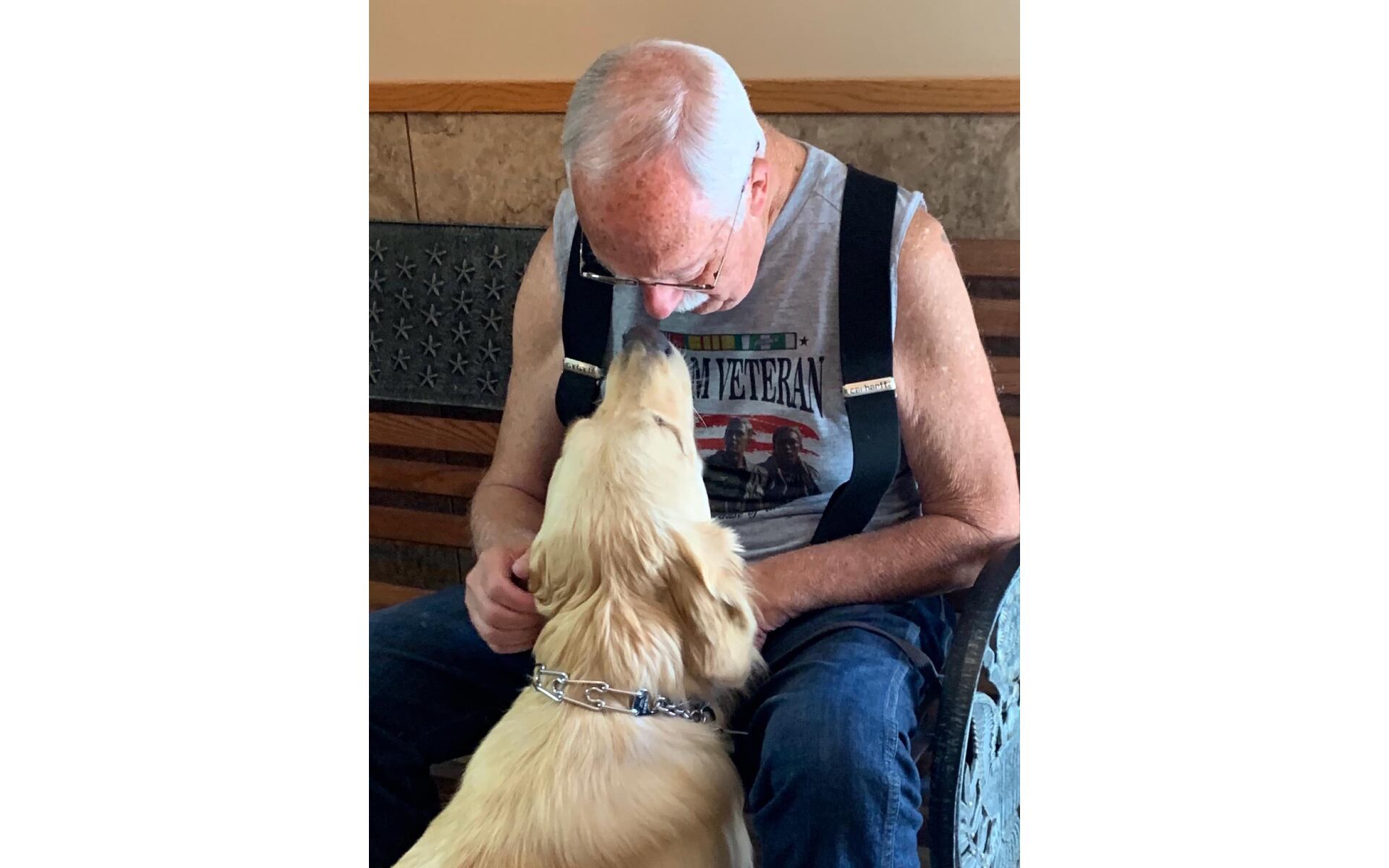Shannon Walker had worked with hundreds of dogs and their owners during 30 years as a professional dog trainer. But of all the training jobs she’s taken on during her award-winning career, this request was unique.
Little did she know at the time it would also be life-changing.
“A veteran came to me looking for help, and he wanted his dog to be trained as a service dog,” she said. “I’d trained service dogs before but certainly never with a veteran with PTSD.”
That moment with a veteran led to Walker creating Northwest Battle Buddies, a non-profit in Battle Ground, Washington, that trains service dogs to pair with military veterans who are struggling with post-traumatic stress disorder. Walker’s program has helped military veterans cope with life beyond the battlefield.
Since starting her program in 2012, Walker, the founder and CEO, has paired 212 veterans with service dogs. Each one has touched Walker in a way she never imagined it would before starting the program.
Walker’s dad was a veteran and he raised her on the importance of veterans in the United States and the proper ways to respect them and their contributions that allowed her to live free. One thing she wasn’t as aware of was the struggles that some veterans go through once they come home to civilian life.

“I had no idea that men and women were still paying a price for my freedom long after coming home after not wearing the uniform anymore,” she said.
Even though Walker had trained K-9s for police officers and won awards for her training efforts, she knew this case would be a special one.
“I assessed the dog and her temperament, and she was young enough, and I was like, I’m going to need her for many months,” Walker said. “And then teaching her how to navigate life and then finding out what she needed to learn to task for, and what were the symptoms that the veteran was looking to mitigate. I took her on to train and it was business as usual until the veteran came to train with her and that’s when things started to change for me.”
Walker learned more about why her client was struggling with PTSD, how he was an Army veteran and how many of his fellow soldiers served with him during combat only to take their own lives once they returned home.
“We were in public and he was struggling,” Walker said. “But I saw him find the courage inside him to lead his dog to places he was afraid to go alone. And I saw him find courage to do what he wasn’t willing to do for himself. When I watched him walk away after his final testing, I truly felt like I made a difference in the life of a human being.”
Walker trains the dogs to react to issues that veterans are dealing with, like trouble sleeping, one of the biggest challenges veterans with PTSD face.
The process to train the dog and owner is a long one. Walker spends five months training the dogs alone. Then, the veteran travels to Washington and spends three weeks with Walker and the dog learning how to work together.
“Hours through the night for veterans are the worst, and our veterans are immediately reporting sleeping for the first time in sometimes decades, because they have the peace of mind that their dog is here and if the dog wakes them up from a nightmare, they have the peace of mind that the dog is there,” Walker said.
It costs Northwest Battle Buddies $25,000 to train each dog, so Walker relies heavily on the contributions of individual donors and businesses to help with costs.
Northwest Battle Buddies has three eligibility requirements:
- Must be a veteran who has deployed.
- Must have a doctor’s diagnosis of PTSD with required documentation.
- Must have been honorably discharged or be a qualified active duty service member in the U.S. Armed Forces.
For more information, veterans can contact 360-558-2049.




